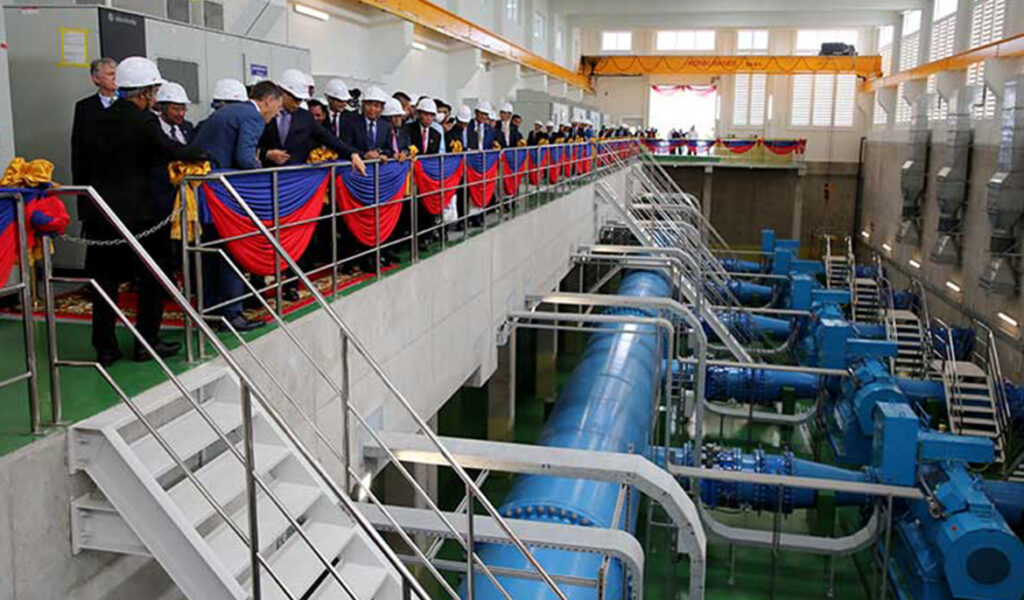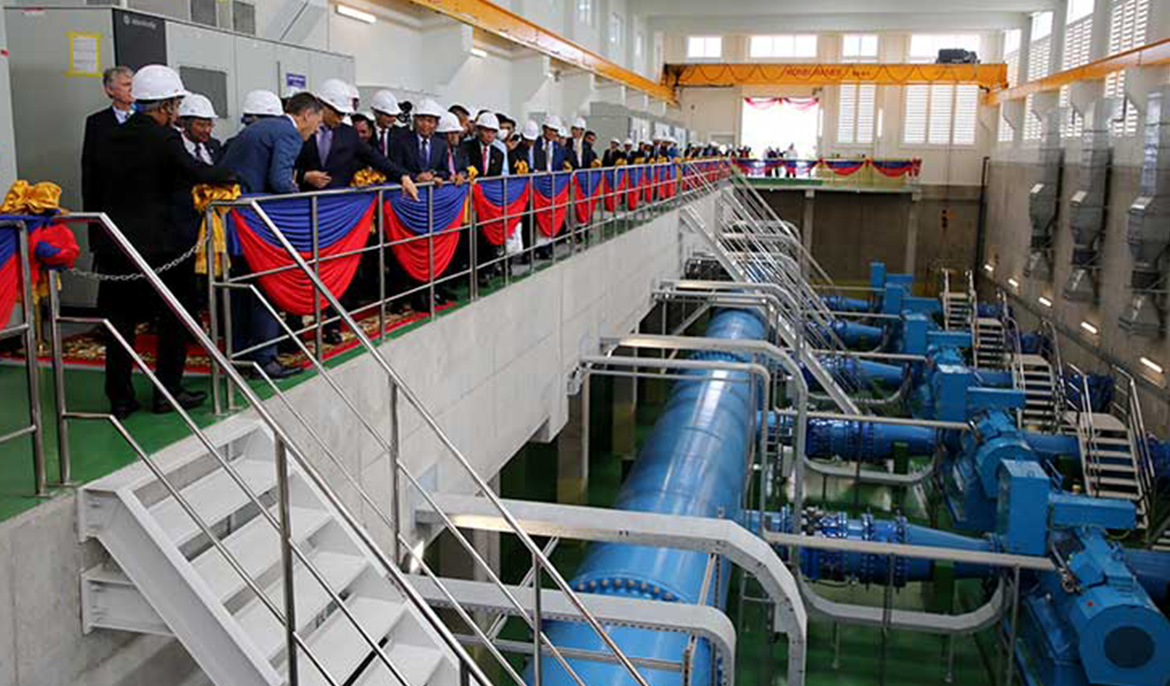The Cambodian government spent about $660 million for the three phases of the Bakheng water treatment plant which aimed to meet the growing demand for clean water in Phnom Penh and nearby Takhmao City of Kandal province.
The construction of the Bakheng water treatment plant was divided into three stages and two of them have already been put into operation, contributing to increasing the capacity of the Phnom Penh Water Supply Authority (PPWSA), under the Ministry of Industry, Science, Technology, and Innovation, to supply 982,000 cubic metres of clean water per day.
Phase II of the plant with a capacity to supply clean water of 195,000 cubic metres per day was officially inaugurated on Tuesday along with the groundbreaking ceremony for Phase III, which is scheduled to complete construction in the third quarter of 2027.
The Bakheng Water Treatment Plant III will have a production capacity of 195,000 cubic meters per day after the completion of construction. This will increase the total water supply capacity of PPWSA to around 1.2 million cubic metres per day.
Bakheng Phase II can completely address the water shortage issues of Phnom Penh Water Supply Authority, said Aun Pornmoniroth, Deputy Prime Minister and Minister of Economy and Finance, who presided over the launch ceremony.
“After the completion of the third phase of the construction project, the Bakheng water treatment plant will have the capacity to produce an additional 195,000 cubic metres of clean water per day to meet the daily increasing water demand from residents in Phnom Penh and Takhmao City of Kandal Province,” Pornmoniroth said.
The three phases of the Bakheng water treatment plant cost some $660 million, of which $410 million is a concessional loan from AFD, another concessional loan of $100 from the European Investment Bank (EIB), $26 million grant from the European Union and $124 million a contribution from PPWSA.
Located north of Phnom Penh, the facility is built by the France-based Vinci Construction Grands Projects.
PPWSA has stated that the population growth and rising constructions such as condominiums, warehouses and supermarkets in Phnom Penh and Takhmao city have led to increased demand for clean water, which was over and above the production capacity until now.
The investment in the plant is expected to address the current and future water needs of these cities, providing residents with reliable access to clean water, Pornmoniroth said, adding that the project will contribute to better living standards and economic development in Cambodia.
“The Bakheng project signifies the Cambodian government’s commitment to enhancing Cambodia’s water supply to meet the rising demand of the residents,” he said.
The government has set a policy to expand the scope of water supply in urban areas to 100 percent by 2025 to serve the basic needs of the people.



